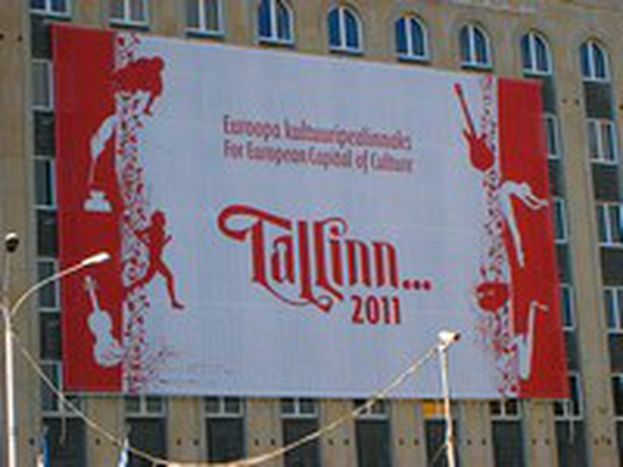
Tallinn 2011: fairytales spin gold
Published on
Translation by:
Nabeelah ShabbirEstonia is determined to present Tallinn as a dynamic culture capital when it assumes the title in 2011 – even with a grouchy Europe
'Estonia is a wonderland,' are the proud words which burst out of Katri Ristal, director of the design innovation centre of the Estonian art academy. Two students who sit beside her, Riin Kranna-Rõõs and Eve Arpo, shake their heads in amazement at her confidence. Ristal's description of their native country sounds like the slogan for Tallinn's 2011 European Capital of Culture project - Tallinn: Everlasting Fairytale.
The historical centre is certainly quite spellbinding, with its warehouses, defence towers in the Old Hanse town and the onion spires on the Alexander Newski Cathedral, the Russian Orthodox landmark not far from the Estonian parliament. On the medieval Raekoja plats (Town Hall square), a group of 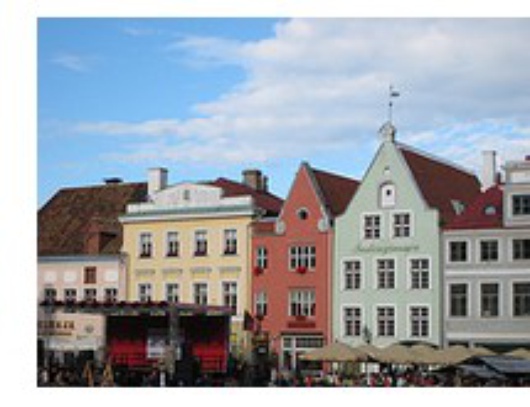 students sing in traditional costume. Winding cobbled lanes lead to the Toompea hill. This is the image that the city wants to represent their status as culture capital. A floral pattern entwines around the huge poster adorning the entire outer facade of the famous Kohvik Moskva (Cafe Moscow), the medieval logo for 2011. Tallinn managed to win the bid to be future culture capital (alongside Turku, Finland), upon their third application to Brussels.
students sing in traditional costume. Winding cobbled lanes lead to the Toompea hill. This is the image that the city wants to represent their status as culture capital. A floral pattern entwines around the huge poster adorning the entire outer facade of the famous Kohvik Moskva (Cafe Moscow), the medieval logo for 2011. Tallinn managed to win the bid to be future culture capital (alongside Turku, Finland), upon their third application to Brussels.
Standstill is death
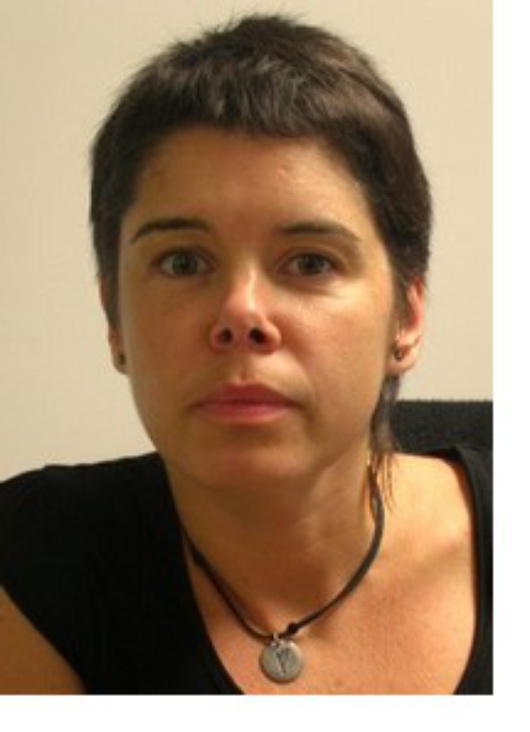 'All our doors are open - just pick one,' says Ristal on Estonia's current culture scene. Tiina Lokk certainly did when she founded a huge, internationally recognised film festival in Tallinn in 1997, the annual Black Nights Film Festival (PÖFF). The name alludes to the mystical pitch-dark nights of the Estonian winter, and will open as part of the 2011 celebration.
'All our doors are open - just pick one,' says Ristal on Estonia's current culture scene. Tiina Lokk certainly did when she founded a huge, internationally recognised film festival in Tallinn in 1997, the annual Black Nights Film Festival (PÖFF). The name alludes to the mystical pitch-dark nights of the Estonian winter, and will open as part of the 2011 celebration.
'Estonia is a country of legends,' explains Lokk. Her office is in the former Soviet television and radio building, a huge white dove sculpture on its grey facade. 'When you fly into Estonia, you go over the 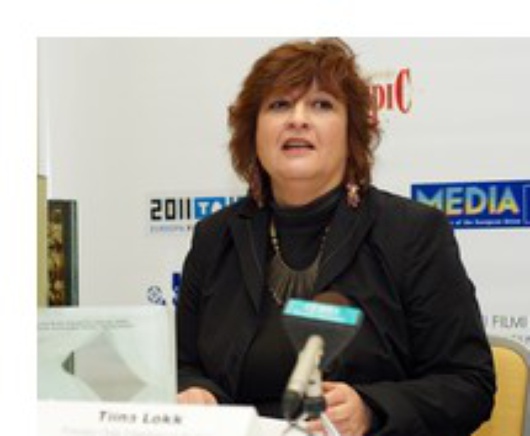 Lake Ülemiste, which lies high up to the east of the city. The lake has an inhabitant, according to local myth – the 'Ülemiste Elder' (Ülemiste vanake), who by legend comes to the city gates every Thursday and asks 'Is Tallinn finished yet?' To which the residents answer, 'No, not yet' – if they answer 'yes', the figure would then flood the city.
Lake Ülemiste, which lies high up to the east of the city. The lake has an inhabitant, according to local myth – the 'Ülemiste Elder' (Ülemiste vanake), who by legend comes to the city gates every Thursday and asks 'Is Tallinn finished yet?' To which the residents answer, 'No, not yet' – if they answer 'yes', the figure would then flood the city.
This legend has also weaved into the package that Tallinn is preparing for 2011. 'The city that will never be complete' serves as the second slogan of the future culture capital. It's been through more than 300 years of foreign rule - as the German Hanse town of 'Reval', under the Swedes in the fifteenth century, back under Russian rule, the hands of the Nazis and finally, as a Soviet state until 1991. The city has gained a certain flexibility under constant change, its creative strength giving it the potential to be a successful cultural capital.
European tight purse-strings
Deputy mayor Kaia Jäppinen and Lennart Sundja, who is head of planning for the 2011 project, went to Brussels during the summer to start cooking ideas under the guidance of the European culture committee. The latter however managed to stall the euphoria somewhat. Folklore is described as an 'overriding theme' on the 2011 programme - what about activities related to contemporary art, and 'the necesarry excellence which is required for carrying the title ECOC,' concluded the commission report published on 4 June. Moreover the culturally diverse population – especially the 'large minority of people that have a Russian background' - needed to be integrated more broadly in the programme.
'These comments came after the outcry around the removal of the Bronze soldier statue in April,' says Sundja, sitting on a huge stool made out of oak wood on town hall square. 'You know, in Brussels we were asked if we'd include a concert by a group from St. Petersburg – it's simply ridiculous. In terms of culture it's part of our everyday life!' Lokk sees film as a 'democratic medium'. Many films in the festival have Russian-speaking protagonists, others are subtitled. 'In the cinemas they're all the same.'
The EU is a bit stingy - they are donating a mere 1.5 million euros, but the planned budget costs over 17 million euros. But prestige indicates that the title of a 'cultural capital' alone means development and progress. Sundja explains a new project that is 'based on the Bronze soldier, explaining the stories behind the monuments.' A book and seminar are also in the planning. 'We're looking for interesting ways to tackle the theme. In Lithuania the old monuments are in a type of theme park called Stalin World,' he smiles.
The 'Bordering Memories' project with Turku, Finland, the second culture capital in 2011, and St Petersburg, is on the programme too. '2011 offers us the opportunity to show that Estonia has united many faces and languages,' says Marek Demjanov, director of the Russian Theatre. According to Aleksandr Iljin, director of the Russian culture centre, since the events last April cultural relations have already clearly worsened.
2011: inject modernity
'Folklore has a different meaning in Estonia than in western Europe,' says Sundja. 'We keep tradition alive, but now that we are free, we are also trying to shake off the old stuff,' agrees Ristal, who put forward the so-called 'design city plan' for Tallinn for the Design Year (2006/ 07). A second version is in the pipeline for 2011. 'The majority of the starting points on the design-map lie in the old town,' says Eve. 'But they're shown from a new perspective: a determined step to build new on the old.'
Many projects follow the trend of injecting modernity in what's already existing. The entire coastal region, pure factory ground, which wasn't accessible during the Soviet time, is being developed into a 'culture mile'; a dark 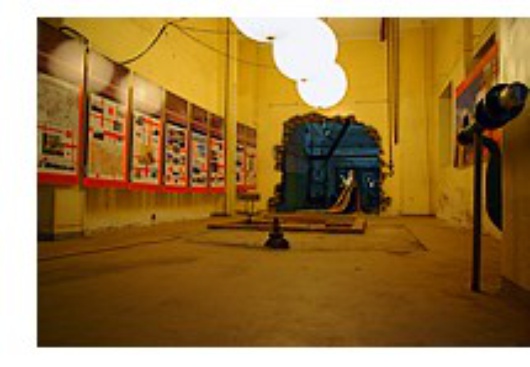 power and heat supply station. In 1979 it was the scene of Andrei Tarkovsky's Stalker, and will be transformed into a modern culture factory.
power and heat supply station. In 1979 it was the scene of Andrei Tarkovsky's Stalker, and will be transformed into a modern culture factory.
'Tallinn is constantly on the move. After five years – even within half a year – taking a look back, you hardly recognise the city,' exaggerates an enthusiastic Ristal. 'We're small, but dynamic. When we have an idea, we get to it. That's our arrogance – in the positive sense of the word. It's like surfing; we just follow the tide.' Tallinn simmers incessantly as it prepares to show itself off as the 'wonderland' it feels it is.
Thanks to Zeidy and Taivo Metsa
In-text photos: cultural capital poster, Town hall square (KK), Tiina Lokk PÖFF (PÖFF), Katri Ristal from Design Innovation Centre (Katri Ristal), culture cauldron (Cultural Heritage Department Tallinn)
Translated from Tallinn 2011: Märchenstund’ hat Gold im Mund



